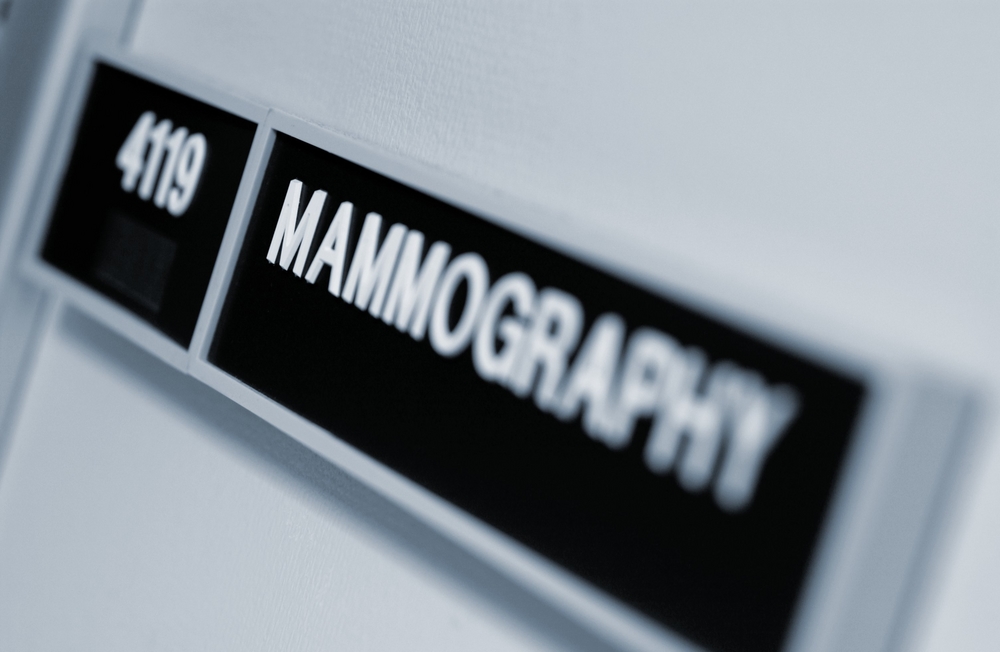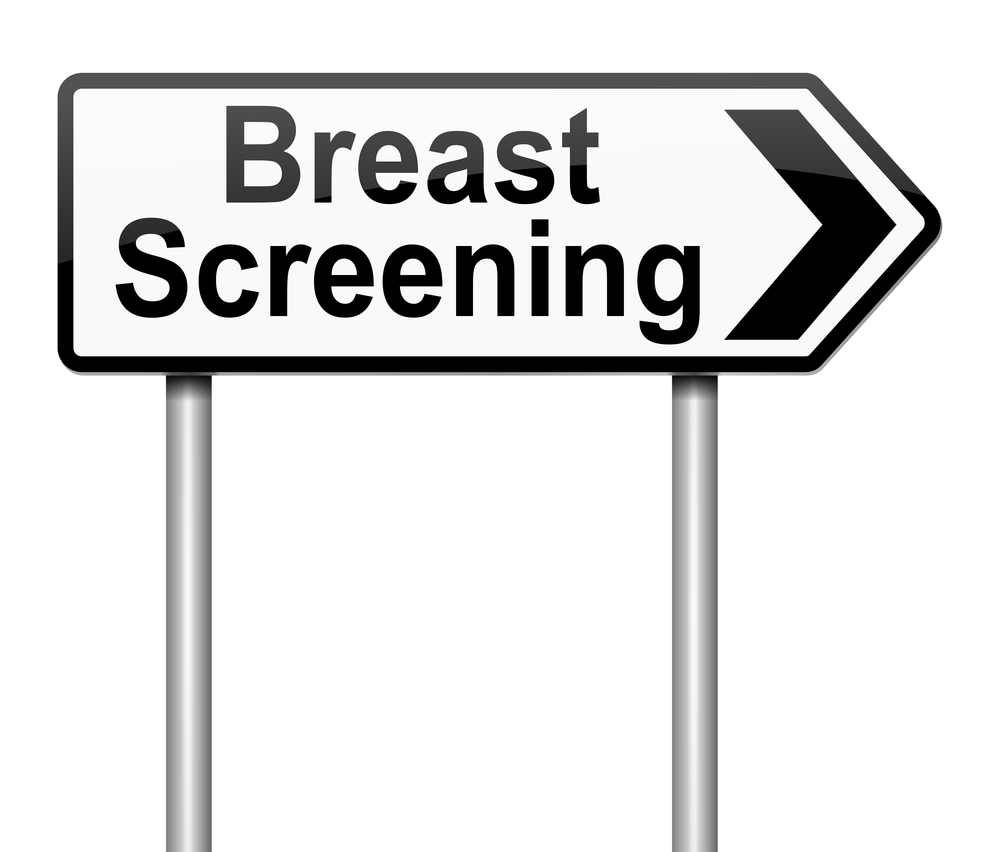There is considerable confusion about the role of mammograms in breast cancer detection in premenopausal women. The US is the only country in the world making the recommendation that they be done on women under the age of 50. The people standing to profit from doing mammograms in this age group are the mammogram industry, Big Pharma in the sale of chemotherapy, and health care practitioners who treat people for cancer. Too many early cancers are found that do not progress and which do not kill are found and unnecessarily treated (DCIS). Recent data shows that it is necessary to do 1800 mammograms to save a single life. This would lead to far too many biopsies and treatment. The US is the only country in the world making the recommendation that they be done on women under the age of 50. The people standing to profit from doing mammograms in this age group are the mammogram industry, Big Pharma in the sale of chemotherapy, and health care practitioners who treat people for cancer. Too many early cancers are found that do not progress and which do not kill are found and unnecessarily treated (DCIS). Recent data shows that it is necessary to do 1800 mammograms to save a single life. This would lead to far too many biopsies and treatment.
Mammograms
Mammograms Find too Many Low-Risk Cancers
 As a woman ages her chances of being diagnosed with a low risk breast tumor increases. Women over 50 years old have too many cancers detected by mammograms that are not dangerous and lead to unnecessary biopsies and treatment with surgery, chemo, and radiation. UCSF researchers used a molecular testing device to determine the extent of malignancy breast cancers without metastases have and then correlated cancers from 20 years ago to the past decade and found that mammography revealed a large number of slow to moderate growth tumors in today's women compared to an era where mammograms were not done so routinely.
As a woman ages her chances of being diagnosed with a low risk breast tumor increases. Women over 50 years old have too many cancers detected by mammograms that are not dangerous and lead to unnecessary biopsies and treatment with surgery, chemo, and radiation. UCSF researchers used a molecular testing device to determine the extent of malignancy breast cancers without metastases have and then correlated cancers from 20 years ago to the past decade and found that mammography revealed a large number of slow to moderate growth tumors in today's women compared to an era where mammograms were not done so routinely.
Mammograms Find to Many Low-Risk Cancers
The Mammography Industry is Clinging to a Failed Test for Women Under Fifty
 Let's face it. Mammograms are far from a perfect test, especially in women under the age of 50, and particularly in women with fibrocystic breasts. The United States Preventive Task Force no longer recommends screening women routinely for breast cancer with mammograms in this age group. There has been a flood of complaining from the American Cancer Society and the mammography industry that this is a mistake, and that many lives are lost to breast cancer as a result.
Let's face it. Mammograms are far from a perfect test, especially in women under the age of 50, and particularly in women with fibrocystic breasts. The United States Preventive Task Force no longer recommends screening women routinely for breast cancer with mammograms in this age group. There has been a flood of complaining from the American Cancer Society and the mammography industry that this is a mistake, and that many lives are lost to breast cancer as a result.
A new study from Cornell Medical Center claims that of 14,500 screens in women under age 50 uncovered 21 invasive cancers. How many would be benefitted from this discovery is not discussed. Depending on the study, between one in 700 and one in 1800 women are benefitted from mammography in women under the age of 50.
The problem, of course, is how many people are being over-diagnosed and over-treated because of mammograms. This number is huge and must be at least in the range of 30-40% and at a cost of billions of dollars and of considerable morbidity and psychological trauma.
Adding breast thermography would be a major advance in screening women in this age group. It is amazing that this FDA approved test is not at least used as an adjunct to the existing tests that check for breast cancer!
Biennial Mammograms are Sufficient to Screen for Breast Cancer
 According to researchers at the University of California Medical Center, and published in the March issue of Internal Medicine, screening for breast cancer every two years is preferrable to yearly screens when doing mammograms. This was based on a study of 900,000 women. It appears that this applies to women from the age of 50-94. Mammograms picked up the same number and size of tumors whether done annually or biennially and whether or not women had dense breasts or were on hormone replacement therapy! However, for women under the age of 40 this was not true.
According to researchers at the University of California Medical Center, and published in the March issue of Internal Medicine, screening for breast cancer every two years is preferrable to yearly screens when doing mammograms. This was based on a study of 900,000 women. It appears that this applies to women from the age of 50-94. Mammograms picked up the same number and size of tumors whether done annually or biennially and whether or not women had dense breasts or were on hormone replacement therapy! However, for women under the age of 40 this was not true.
The problem is that mammograms are far from an ideal test because they cause some cancers because they deliver significan radiation and because they result in far too many false positive tests that end in retesting, increasing morbidity, and increasing costs. Fifty percent of women screened annually with mammograms will have at least one recall over a ten year period.
Biennial Mammograms are Suffient to Screan for Breast Cancer
Mammography: More Harm than Good?
 Screening mammograms could be doing more harm than good according to an article published in the British Medical Journal in December of 2011. The benefits of mammograms were not so apparent because of the risk for overtreatment. Data showed that for every 2000 women taking a mammogram throughout 10 years, one will have her life prolonged, and 10 healthy women who would not have been diagnoses if they had not been screened will be diagnosed and treated unnecessarily. The harms from false-positive results and unnecessary surgery reduced the benefits of screening by about half.
Screening mammograms could be doing more harm than good according to an article published in the British Medical Journal in December of 2011. The benefits of mammograms were not so apparent because of the risk for overtreatment. Data showed that for every 2000 women taking a mammogram throughout 10 years, one will have her life prolonged, and 10 healthy women who would not have been diagnoses if they had not been screened will be diagnosed and treated unnecessarily. The harms from false-positive results and unnecessary surgery reduced the benefits of screening by about half.
Mammography: More Harm Than Good?
Fewer Mammograms Needed for Low-Risk Women
 Less frequent mammograms for wonem at low risk for breast cancer can be a cost effective way of saving lives. Women with no family history of breast cancer, no previous biopsy and breasts that are not dense need far fewer mammograms than women with these risk factors. For women under the age of 50 without these three risk factors, mammograms are not worthwhile. To save one life among women under the age of 50, 8000 women would have to be screened and 17% would experience a false positive cancer scare that would lead to more radiation and a biopsy. Women with dense breasts under age 50 would benefit from a mammogram every three to four years. For older women without these three risk factors, it is cost effective to do mammograms every 3-4 years. For those with denser breasts, every two years is recommended.
Less frequent mammograms for wonem at low risk for breast cancer can be a cost effective way of saving lives. Women with no family history of breast cancer, no previous biopsy and breasts that are not dense need far fewer mammograms than women with these risk factors. For women under the age of 50 without these three risk factors, mammograms are not worthwhile. To save one life among women under the age of 50, 8000 women would have to be screened and 17% would experience a false positive cancer scare that would lead to more radiation and a biopsy. Women with dense breasts under age 50 would benefit from a mammogram every three to four years. For older women without these three risk factors, it is cost effective to do mammograms every 3-4 years. For those with denser breasts, every two years is recommended.
Fewer Mammograms Needed for Low-Risk Women
Mammograms Remain Controversial
 One third of cancers detected by mammography may not be life-threatening according to the November of 2012 issue of the New England Journal of Medicine. Over the past 3 decades, an estimated 1.3 million women have been over-diagnosed of breast cancer that has led to treatment for a cancer for which they did not need treatment.
One third of cancers detected by mammography may not be life-threatening according to the November of 2012 issue of the New England Journal of Medicine. Over the past 3 decades, an estimated 1.3 million women have been over-diagnosed of breast cancer that has led to treatment for a cancer for which they did not need treatment.
Many of these cancers are ductal carcinoma in situ (DCIS), which in 97% of cases does not shorten life expectancy. However, many are invasive cancers that will spontaneously resolve on their own. Autopsies of women at age 50 show that 30% have an invasive breast cancer. However, many of these resolve because nowhere near 30% of women of this age will die of breasts cancer.
So, we're in desperate need of a breast cancer screening test that is accurate, does not cause cancer, and is affordable. While there is no ideal test today, breast thermography is the closest test that fulfills these criteria.
Canadians Recommend Fewer Mammograms
 The Canadian Task Force on Preventive Health Care now recommends mammograms every three years, no self breast examinations, and no clinical breast exams. They believe these procedures cause too many needless biopsies, mental anguish, and over treatment. This also leads to massive overtreatment of DCIS (ductal carcinoma in situ) which is only life-threatening in 2% of cases. DCIS can be cautiously followed, but unfortunately is overtreated.
The Canadian Task Force on Preventive Health Care now recommends mammograms every three years, no self breast examinations, and no clinical breast exams. They believe these procedures cause too many needless biopsies, mental anguish, and over treatment. This also leads to massive overtreatment of DCIS (ductal carcinoma in situ) which is only life-threatening in 2% of cases. DCIS can be cautiously followed, but unfortunately is overtreated.
The United States Preventive Services Task Force also recommends that women under the age of 50 not have routine mammograms. The American College of Radiology remains adamant that mammograms should begin at age 40. It seems that selecting patients for breast cancer screening should be based in each unique individual situation.
Canadians Recommend Fewer Mammograms
 Here at DoctorSaputo.com, we have over 50 media files that are related to mammograms. Click Here to see a listing of these media files.
Here at DoctorSaputo.com, we have over 50 media files that are related to mammograms. Click Here to see a listing of these media files.




